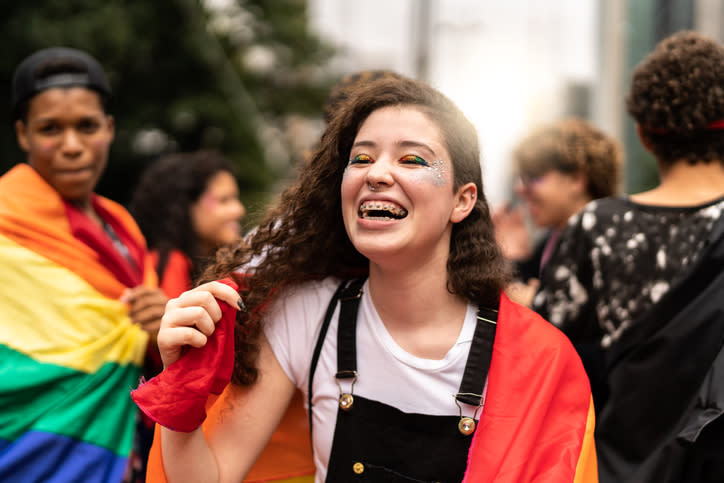
Digital wellness
Back-to-school productivity apps and tools for the entire family
Use technology to stay organized and focused during the back-to-school season.
Read article
Nimmi Kanji
Director - Social Purpose Programs, For Good and TELUS Wise

I recently had the pleasure of attending PREVNet’s 10th annual conference, Promoting Healthy Relationships for Youth: Creating Spaces that Support Equity, Diversity and Inclusion. The days were jam-packed and informative, and two presentations that stood out to me included a keynote presentation on identity-based victimization from Deinera Exner-Cortens, PhD, an Assistant Professor at the University of Calgary, and a workshop hosted by Kristopher Wells, PhD, an Associate Professor at MacEwan University, on Alberta’s approach to homophobic and transphobic bullying. Combined, these presentations highlighted some interesting insights and suggestions that are worthy of sharing, especially as we celebrate Pride Month across the country.
Exner-Cortens started her keynote by offering a simple definition for identity-based victimization, also known as bias-based bullying. She referred to it as bullying that occurs because of who somebody is and a behaviour that sits at the ‘intersection of discrimination and victimization.’ One study with national U.S. data found that a staggering 31.3% of bias-based bullying occurs because of one’s sexual orientation. Other bias-based bullying can be attributed to gender, race, ethnicity, religion and/or disability status.
Whatever the motive, bullying and victimization are wrong and can have a significant impact. Research indicates that bias-based bullying puts targets at a greater risk for school avoidance, smoking, alcohol/drug use, relationship violence and suicidal ideation.
Exner-Cortens also shared the good news that ‘micro-interventions’, in the face of identity-based victimization called micro-aggressions (i.e. everyday put-downs and insults), can have a profound impact. She shared evidence-based suggestions we can all use to help make the invisible visible, and stop victimization in its tracks. If you hear someone engaging in identity-based micro-aggressions, try:
In his workshop, Wells shared an eye-opening look at Alberta’s journey to address homophobic and transphobic bullying in schools across the province. Much progress has been made already with respect to building welcoming and respectful schools; however, there is more work to be done to protect LGBTQ+ youth and support their allies. Other provinces are also making progress in supporting a safe and inclusive learning environment for LGBTQ+ youth. In addition to being offered in Alberta, British Columbia also provides SOGI (Sexual Orientation and Gender Identity) inclusive education through a partnership with the SOGI 1 2 3 program. SOGI 1 2 3 helps ensure that educators have access to tools, resources and supports so that they can proactively create safe and inclusive learning environments for their students.
Wells discussed four key factors that can make a difference in the lives of LGBTQ+ youth in school:
These meaningful actions need to be championed by educators and administrators across the country, and I invite you to learn more about them on the EdCan Network website.
Everyone plays a role in fostering safe and inclusive environments at home, work and school, and it is critical for youth to feel confident in intervening when they witness identity-based victimization. Educational resources offered by TELUS Wise, developed in partnership with MediaSmarts, including the TELUS Wise impact tool and TELUS Wise impact workshop, can help empower students with safe and effective intervention strategies. One of the simplest and most effective strategies we share with youth is to reach out to the target privately, letting them know you care and are there for them.
Learn more and request a workshop for your students and/or childrens’ school today.

Use technology to stay organized and focused during the back-to-school season.
Read article
Tips to stay informed without falling into the trap of over consumption or bad news fatigue.
Read article
Learn how to talk to kids about pornography and sexualized media at different ages.
Read article